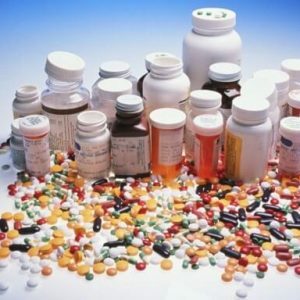How to take antibiotics: basic rules

Antibacterial drugs are used to treat most diseases and most often it is advisable.Unfortunately, many people start using antibiotics even with a slight deterioration in health, but this approach is absolutely wrong.
Antibiotics are powerful drugs that affect the whole body, they must be taken strictly according to certain rules to prevent the development of severe consequences.
Table of contents: Antibiotics should be taken only as prescribed by the doctor Records of each antibiotic intake. No need to insist on prescribing antibiotics. Analyzes for bacterial culture. Time taken, multiplicity and duration. How to drink and how to wash antibiotics. Take care of the digestive systemAntibiotics should be taken only byAppointment of a doctor
There are clear indications for the use of antibacterial agents: a bacterial infection with which the body can not cope independentlyJette. As a rule, physicians prescribe the medicines under consideration in the following clinical picture:
- , the temperature increase is long and steady;
- , purulent discharge from the wound or any cavity is observed;
- blood test will show some changes - increased number of white blood cells, increased erythrocyte sedimentation rate( ESR) or left shift of the leukocyte formula;
- after a clear improvement in the health of the patient suddenly felt bad again.
It is well known that antibiotics have absolutely no effect on viruses, therefore, for colds and acute respiratory viral infections, it is absolutely inadvisable to take such medications.
It is necessary to keep a record of every intake of antibiotics
Many are embarrassed when a doctor when asking for antibacterial therapy asks the patient about how the body felt with past antibiotics.But in such matters there is nothing surprising or strange - the doctor is obliged to know the reaction of the body to medications, so as not to provoke deterioration.
Be sure to pay attention to the following points when taking antibacterial drugs:
- , whether there were any abnormalities in the digestive system( diarrhea or constipation could occur without visible causes);
- what doses of drugs were taken;
- were skin rashes, cough or rhinitis of allergic origin during the administration of antibacterial drugs.
Answers to these questions will help the doctor to choose the right antibacterial preparation and prescribe the correct dosage.
Please note: must tell your doctor about any medications taking place, because many antibiotics are not compatible with other medicines.
No need to insist on the prescription of antibiotics
 Many patients directly urgently require the doctor to prescribe antibacterial agents - "this will help quickly get rid of the disease."But it is not always appropriate to take antibiotics, and the advisability of such appointments is determined only by the attending physician.
Many patients directly urgently require the doctor to prescribe antibacterial agents - "this will help quickly get rid of the disease."But it is not always appropriate to take antibiotics, and the advisability of such appointments is determined only by the attending physician.
You should not also ask for a drug "stronger" in pharmacies - perhaps some drug will have an almost instantaneous effect, but the consequences of taking such aggressive and powerful remedies are often little known to doctors themselves.
Note: sometimes a pharmacist at a pharmacy may suggest replacing a prescribed drug with another similar in effect.In this case, you need to carefully study the composition of the drug, so as not to be mistaken in the dosage and duration of administration.
To select an effective antibiotic, it is necessary to take tests for bacterial culture
Some diseases simply "require" the passage of the analysis for bacterial culture - the drug in this case will be assigned the most effective and in harmless dosage.The problem is that doctors prefer to dispense with the prescription of antibacterial drugs of a wide spectrum of action, and the results of the analysis will need to wait 2-7 days.
It is necessary to strictly adhere to the reception time, the multiplicity and duration of
 Doctors do not just prescribe antibiotics at regular intervals - this is how the level of drug concentration in the blood is reached.Many believe that if an antibiotic is prescribed to be taken 3 times a day, it means "breakfast / lunch and dinner", but in fact it is understood that the medicine should be taken every 8 hours.If the drug should be taken 2 times a day, the patient should clearly withstand the time interval between doses at 12 hours.
Doctors do not just prescribe antibiotics at regular intervals - this is how the level of drug concentration in the blood is reached.Many believe that if an antibiotic is prescribed to be taken 3 times a day, it means "breakfast / lunch and dinner", but in fact it is understood that the medicine should be taken every 8 hours.If the drug should be taken 2 times a day, the patient should clearly withstand the time interval between doses at 12 hours.
Many people take antibiotics literally on day 3 and interrupt the course - "the symptoms of the disease have disappeared, the condition has improved, why poison the body."In fact, this is an incorrect opinion, because antibiotics have the property of accumulating in the blood / body and only after that start their active action.Therefore, it is generally accepted to prescribe antibacterial drugs for admission for 5-7 days, and in some cases the duration of the course can be 10-14 days.If you interrupt the course of admission, the pathology will remain untreated and a "surge" of symptoms with greater intensity will be the proof.
It is also necessary to closely monitor the state of health in the first 72 hours of taking antibacterial drugs - if improvement does not occur, you will need to change the drug( this will be taken care of by the doctor in charge).
Note: has antibacterial long-acting drugs( for example, Azicide or Ecomed - there are actually a lot of them), which are prescribed for admission every 3 days, or courses of 3 days intake / 3 days break.Only the doctor can choose the effective dosage of the drug and the duration of the course of admission!
How to drink and how to wash antibiotics
It is necessary to strictly observe the time of taking antibacterial drugs - this is indicated in the annotation( instructions) or the patient will be informed about it by the attending physician.The fact is that for different preparations of the group under consideration, these conditions will differ. For example, there may be such variants:
- reception one hour before a meal;
- use 1-2 hours after eating;
- taking antibiotics directly while eating.
Drink antibiotics only with clean and non-carbonated water.It is strictly recommended not to drink antibacterial drugs with milk and fermented milk products, tea, coffee and natural juices.Of course, there are exceptions, they are all specified in the instructions for use.
Protect the digestive system
Antibacterial substances destroy not only pathogenic / pathogenic microorganisms in the body, but also useful ones.Especially aggressively treated type of drugs affects the intestinal microflora, therefore during treatment it is necessary to take probiotics.Usually doctors prescribe Acipol, Linex, Normoflorin and other drugs.
Please note that probiotics should be taken in between the courses of treatment of antibacterial drugs.
Taking antibiotics adversely affects the functioning of the liver, so for the entire period of the course of treatment it is necessary to adhere to certain restrictions in food:
- to refuse too fatty foods;
- do not eat pickled and fried foods;
- exclude from the diet acute and sour, alcoholic beverages;
- to minimize the use of smoked products.
Antibacterial drugs - this is the greatest discovery of civilization, which allowed to reduce mortality from diseases almost to zero.But that these funds have a really positive impact on the work of the body, you need to know and follow the rules of their intake / use.
Tsygankova Yana Aleksandrovna, medical reviewer, therapeutist of the highest qualification category



